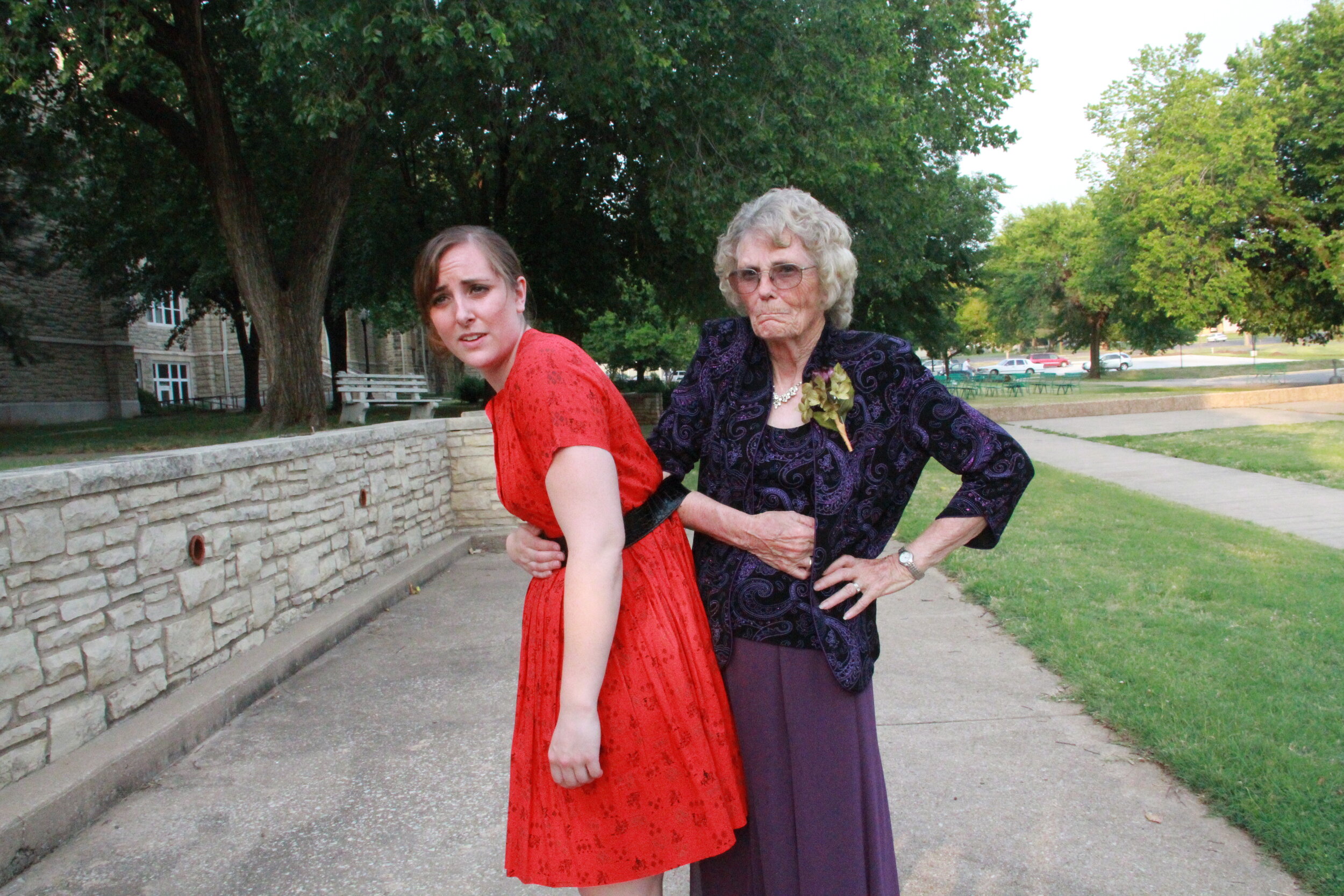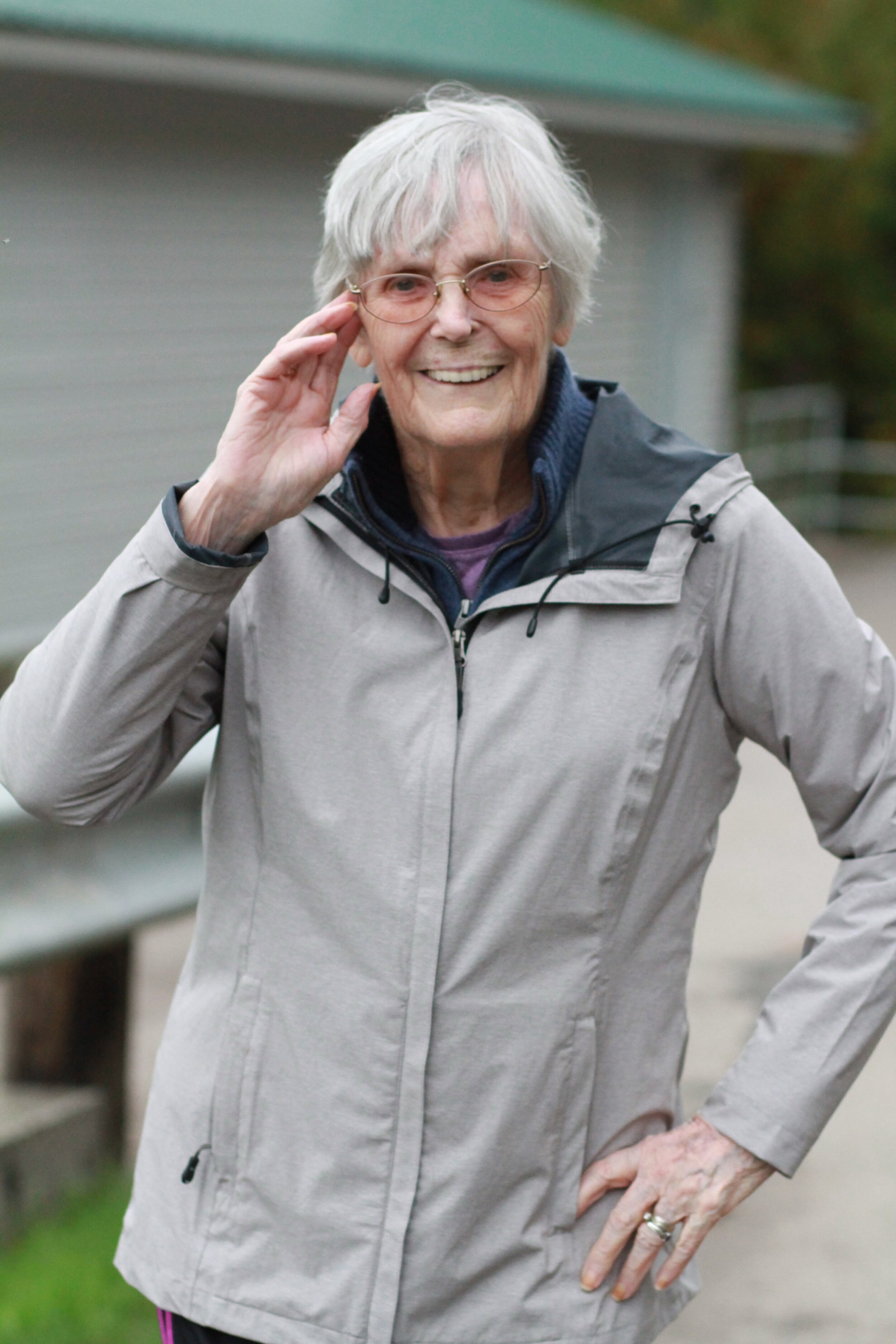Life Isn't Fair: Sometimes You Get Stinking Lucky
F is For Frances: Teacher (aka Mom and Grandma) Extraordinaire
When a girl or woman gives birth or adopts a child, we label her MOTHER. Then, whether or not she has the training and desire to be a mother, we burden her with layers of expectations. Most of all, under the title of Mother we expect perfection in love.
My four siblings and I got lucky. Frances would be the first to own that she wasn’t perfect, especially in the art of love. But she was a Teacher (with a capital T). Mom (also, Grandma) were just the ultimate manifestations of her beloved career—teaching.
Being a Texan, Frances used adages to maintain order among children. Her favorite was:
LIFE. Isn’t Fair.
She wielded that phrase more deftly than pruning shears. A student didn’t like his assignment? One of her five kids had a bigger piece of cake than another? One grandchild got to go fishing more than another one? Woe to the child who whined “But that’s not faaair!” Her three words snipped complaints at the root. I wish there was a video of her saying it to show just the right emphasis and pause. But you’ve probably met your own master of pronouncement. No yelling needed.
Frances was my mother. She’s been gone just a little more than a year. Her last ten years were an agonizing sink into Alzheimer’s dementia. My attempts to write her eulogy kept circling the drain of despair and anger. Why? Why should a woman who was so intelligent, who loved learning and teaching, who served so many, end up with such an undignified, stupefying disease?
Her favorite phrase kept bobbing into my brain, life isn’t fair. ‘Exactly,’ I kept nodding, but continuing to whine anyway.
Finally, Frances got through to me. “Reba Jean, what did I teach you? Don’t you dare paint my life as a tragedy.” Oh! Sunlight pierced my brain swamp. Life is not FAIR has a flip side. Not fair that Frances, despite a hardscrabble childhood, completed college at the age of 20. Not fair that she met my fierce, humorous, and loyal dad. Not fair they had sixty years together before he died. Not fair she was intelligent, funny, wise, and determined. Not fair her five children gave her twelve grandchildren to love and instruct.
And most of all, life isn’t fair for us, her family. We were and still are so stinking lucky. We had Frances as mother, grandmother, advocate, and especially as Teacher. Like most good teachers, she was a storyteller and she led by example.
Life Is Fraught with Challenge
Mom grew up on a dairy farm in the panhandle of Texas during the Dust Bowl, the Depression, and World War II. Dad joked that Mom walked five miles to and from school, uphill both ways. But her stories of poverty and struggle had themes. In hard times, people made a difference with generosity, creativity, or grit. Celin videotaped an interview with her grandma about childhood experiences. Talking about how her mother and neighbors shared rationing stamps, Frances’ conclusion: “People were so generous. They helped each other” was one I heard many times in her stories.
My dad’s job as a mechanic for a natural gas company meant moves across three states. Frances, a feminist who slept on curlers like bottle brushes, strove to maintain her teaching and librarian licenses, taking classes to fulfill different state requirements. We moved to a small town in Iowa when I was in Kindergarten. In second grade, she asked the third-grade teacher if I could borrow books from that classroom because I’d read everything in my classroom. The next summer I was helping my mother, the new elementary school librarian, shelve books. I don’t know how she did it, but Frances must have played a role in the formation of that library. And when I moved on to middle school, there she was, organizing a library there, too. In a rural school in Kansas, she created an electronic card catalogue for ‘her’ library. My youngest sister said it was the first in the state. And Frances was no computer whiz. Our lessons: no library (or whatever), then create one; women can have careers (at a time when most of our friends’ mothers didn’t work outside the home); and if a new skill is required, embrace it.
Life Is Funny
Her rural Texas childhood left Mom without skills like ice skating, swimming, and cross-country skiing. But she loved to be outside. In Iowa when our backyard flooded, Dad created an ice rink. Mom tried to teach us how to skate while learning herself. She called her technique “ice dusting.” In Minnesota, her skiing technique was “Three Point” (her explanation: two skis and a fanny).
In the 1940’s, Frances’ father took his kids to a pool. He taught his oldest son how to swim by tossing him into the deep end. A lifeguard rescued her brother and Frances’ terror of water was born. At forty, she braved walking past my teen-aged co-workers as they lounged in the office between swimming classes, to climb into the pool for lessons with me. Her fear was so great we spent several lessons just dipping her face in the water, but finally she came to trust the water and me enough to attempt a back float. To our amazement, her feet floated like corks. Then I discovered that my feet did the same thing. More than ten years of swimming lessons and I’d never noticed. We laughed so hard we had to end the session. After that, swimming was “feet floating.”
Alzheimer’s whittled Frances down to her essence. Her humor remained even as other thought processes deserted her. Her body language became her medium. At a wedding, she said “C’mere Kid!” and slipped her arm through my daughter’s belt while feigning fierce determination. On one of her last birthdays, we cheered (a little too enthusiastically) as she blew out her candles. She stepped back, raised her eyebrows, and clapped as if she’d just heard a string quartet play Bach.
Life Is Fascinating
In more than forty years of teaching and library forming, I have no idea how many students benefited from her wisdom and support. My siblings and I have heard many heart-warming stories. A classmate sought me out at our ten-year high school reunion. We hadn’t been friends so I was surprised when she asked how my mother was doing. She said my mom’s intervention kept her in school. When we were in middle school, Mom was a long-term substitute teacher in Home Economics, this classmate’s homeroom. Frances, whose teaching demeanor was stern and no-nonsense, saw this girl struggling. She took her aside and offered encouragement. With my mom’s help, she climbed out of a downward spiral, stayed in school (where her buoyant nature made her popular), and went on to college.
Deep in Alzheimer’s, although Frances had spent the day wandering the halls of the Memory Care home, she told story after story of encounters with children and their parents. Her stories varied. She may have helped a child tie her shoe or directed a group of children in building a snow fort. A floundering parent might have received just the right words of wisdom from her. The situations and characters changed but the punchline was always the same. She would widen her deep-set blue eyes and drop her mouth open. Then she would turn her head slowly and look her listener in the eye. The characters would ask “Are you a TEACHER?” with surprise, delight, and awe. She’d smile and nod. “Yes, I am.” I’m crying, remembering how proud she was of that title.
For four years, we walked, holding hands while she told me the stories. She didn’t ever describe a ‘bad’ kid. The children might need some direction. They might even say something a little saucy, but she wasn’t ever frustrated or disapproving. Their antics brought her joy. Although she rarely set foot outside the memory care unit, her mind moved in the sunlight of these imaginary children. They loved Teacher and she loved them.
I find solace by imagining our family like a quaking aspen colony. Some aspen groves are not created by individual seeds, but from offshoots of the original roots. What we see as individual trees towering above us are really just vertical shoots from the same root system. The root system doesn’t die when the part we can see, that we call a tree, dies. Even if the part of Frances we could see isn’t here anymore, her roots continue to provide us with sustenance, humor, and a firm anchor in life.
Gratitude:
Divine Mother, thank you for giving me Frances for a mother. What luck! I did nothing to deserve her and plenty to un-deserve her. Life is not FAIR. Thanks to her, I see it is fraught with kindnesses, funny and fascinating. As Frances would say it, “Thanks a million!”
And now, I’m going to leave the alphabet for a minute, in honor of Frances. I think she’d want me to recognize her caregivers who are now COVID heroes:
Thank you, God, for the caregivers in all memory care homes. I confess, I’m grateful Mom is no longer here—trapped in her Alzheimer’s body and living in congregate care during COVID 19.
The caregivers in Mom’s unit were so important. They kept Frances safe, administered medications, alerted me to potential issues like UTIs, and treated her with kindness. Yet they were poorly paid, working shift work, and often called to work shifts back to back because of staffing shortages. They had health care, but in order to make their paycheck contributions affordable, their deductibles were $5000 or more. How many people working minimum wage jobs have an extra $5000 per year? I don’t know what their sick leave policies were. Now, during this pandemic, caregivers are risking their own health and the health of their loved ones. I can’t imagine that wearing a face shield while showering, lifting, toileting, and feeding people who are confused and frightened is easy. Like so many other people receiving low pay, sketchy benefits, and little of our consideration, they are now Essential Heroes.
Readers, please do anything you can to advocate for better pay, better benefits, and quality PPE for them. Perhaps better pay and benefits as well as greater regard will, in turn, help ease staffing shortages. Ask your government and owners of care homes to support congregate care staff with more than hygiene protocols.










